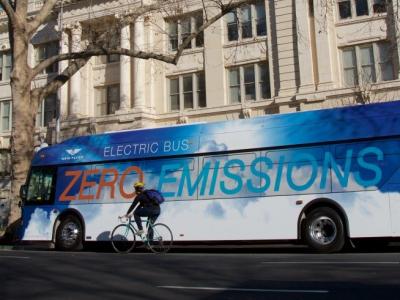Important Annual Reporting and Compliance Deadlines
Revisions to In-Use Off-Road Diesel Rule - Prepare for January 1
Since the adoption of the In-Use Off-Road Diesel-Fueled Fleets Regulation (Off-Road Regulation) in 2007, the off-road diesel sector has achieved roughly a 17 percent reduction in oxides of nitrogen and 21 percent reduction in fine particulate matter in California. The California Air Resources Board (CARB) thanks its industry partners for over a decade of dedication to compliance with this vital regulation, which has made these emission reductions a reality. However, more needs to be done in order to meet the State’s public health and air quality goals. In November 2022, CARB adopted amendments to the Off-Road Regulation, which are summarized below with a focus on those changes taking effect January 1, 2024:
Tier Phase-Out
Phase out the oldest and highest-emitting off-road engines-- Tiers 0, 1, and 2-- from operation in California. Engine “tier” refers to the emissions certification level of an engine and is defined in the Off-Road Regulation section 2449(c). This provision has a staggered implementation by fleet size and engine tier. Large fleets may no longer operate vehicles with Tier 0 off-road engines. Permanent low-use vehicles are not subject to the 2024 phase-out. However, Tier 0 low-use vehicles can no longer operate as of 2036.
Expansion of the Adding Vehicle Requirement
Tier 3 vehicles may no longer be added to any fleet. In addition, medium and large fleets are also restricted from adding Tier 4 interim vehicles and MY 2006 or older on-road vehicles. Small fleets have an extended timeline for adding Tier 4 interim vehicles.
Low-Use Changes
The year-by-year low-use compliance option expires. Previously, year-by-year low-use vehicles operated in California less than 200 hours during the previous calendar year, but did not need to continue operating less than 200 hours in future years. To add flexibility, permanent low-use vehicles now will be allowed to operate less than 600 hours over three consecutive years. Fleets will be required to maintain records through dated photos or written logs of vehicle usage hours to verify low-use status.
Renewable Diesel Requirements
All fleets are required to procure and use renewable diesel in all vehicles owned or operated in California that are subject to the Off-Road Regulation, with some limited exceptions, including for lack of availability. Fleets must document and retain records related to the fleet’s procurement of renewable diesel.
Contracting Requirements
Prime contractors and public works awarding bodies are required to obtain and retain copies of the valid Certificate of Reported Compliance (Certificate) for the fleet selected for the contract and their listed subcontractors, if applicable. Neither contracting entity may award a contract or hire a fleet without a valid Certificate.
Prime Contractor Requirements
Additional requirements for prime contractors include:
Collecting valid Certificates from ongoing contract fleets for the current compliance year,
Allowing only fleets with valid Certificates on the prime contractor's job sites,
Reporting observed noncompliance to CARB,
Displaying informative signs at job sites, and
Disclosing responsible parties upon request.
Optional Zero-Emission Compliance Flexibility
The Amendments also introduce two compliance flexibility provisions as incentives to promote the adoption of zero-emission off-road vehicles.
For additional information regarding the amendments to the Off-Road Regulation, visit www.arb.ca.gov/ordiesel, email doors@arb.ca.gov or call (877) 593-6677.
January 1st
- Each fleet must meet the fleet average requirements or demonstrate that it met the Best Available Control Technology (BACT) requirements before January 1 of each year. For more information regarding the fleet average target and BACT requirements, please see our Fleet Average FAQ.
March 1st
- All fleets are required to complete their annual reporting requirements and submit a Responsible Official Affirmation of Reporting (ROAR) form, affirming the information reported is accurate and that the fleet is in compliance with the regulation. For more information on the annual reporting requirements, please see our ROAR and Annual Reporting FAQ.






